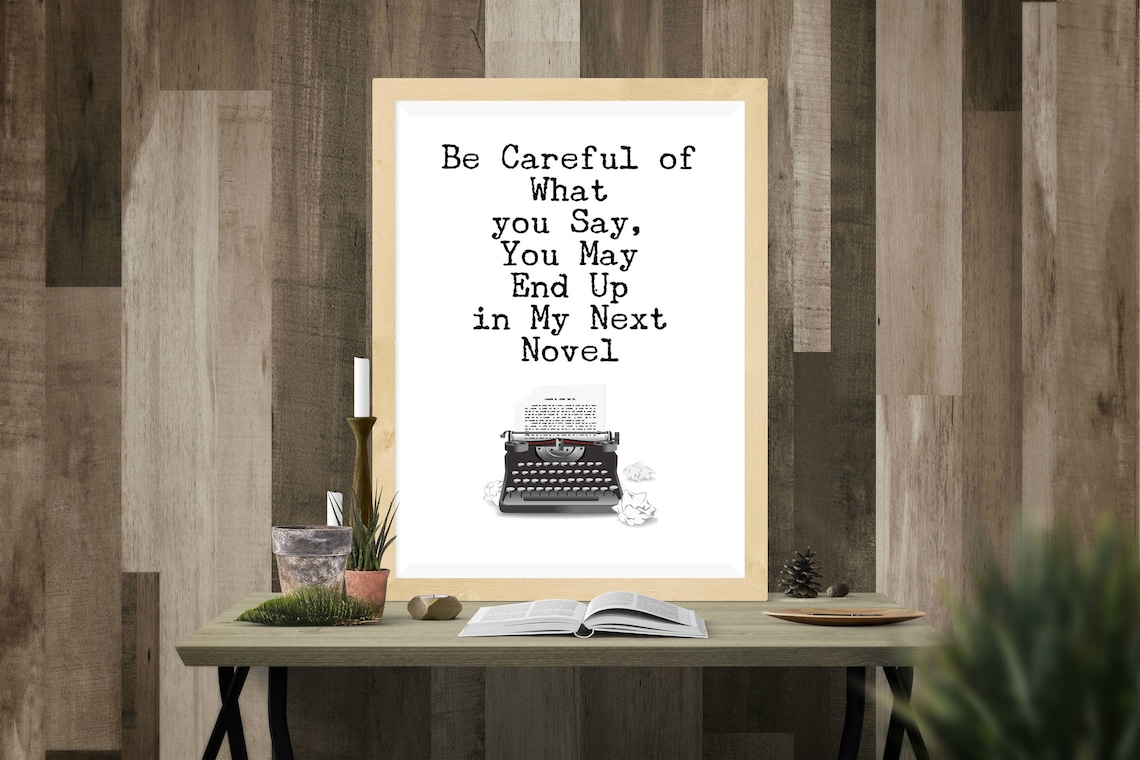Many authors love to tease their friends saying "be careful, or you'll end up in my novel" while true this isn't always a bad thing. I have friends begging to be warriors, mages, or even a villain in my books. They want to know what kind of character I'd make them. I have an ex-roommate who is an elf, a friend who is a pathologist, and another who is a detective.
As authors, we are always told to write what we know. Why? Because it makes our work more realistic and well rounded. Writing characters shouldn't be any different. They should be based on characteristics we see in people every day.
The easiest way to begin writing a hero or villain is to think of the person who fits that character the most. Then you write that person. Try to imagine how that person would react in whatever situation your hero/villain finds him or herself in. This application will not only help you develop your character and storyline but dialogue as well. For instance, if your model was trying to convince the townspeople to fight for themselves how would they do it? What would they say? It's not something they would probably ever do but for creative minds its easy enough to imagine mannerisms, speech patterns, and probable courses of actions.
 When I was writing my first book, I always placed myself in the role of the heroine. It's a bit cliche' I know although I was writing my way through a tough time and it was very therapeutic. Any time my heroine was placed in a tough situation I tried to imagine what I would do if I were her. Alternatively, she had just as tough of a relationship with her mother as I did. All of her interactions with her were based on my own relationship with my mother at the time. Using these real-life experiences made it easier to make an imaginary character real. I could see them interacting and hear their voices rather than reading static words on a page.
When I was writing my first book, I always placed myself in the role of the heroine. It's a bit cliche' I know although I was writing my way through a tough time and it was very therapeutic. Any time my heroine was placed in a tough situation I tried to imagine what I would do if I were her. Alternatively, she had just as tough of a relationship with her mother as I did. All of her interactions with her were based on my own relationship with my mother at the time. Using these real-life experiences made it easier to make an imaginary character real. I could see them interacting and hear their voices rather than reading static words on a page.
In the early stages of your character development, the devil is in the details. Each character needs their own personality. Again this is where having a person to model them after comes in handy. Think about one person you know. Do they have something unique that they do? Is it a specific speech pattern, word, phrase, tick, or habit? If they do use it. Those idiosyncrasies make characters believable as long as they aren't overdone. One or two of my characters rub the back of their neck when nervous while others fidget with their hair. One of my women has a huge attitude, and another is a sex fiend. Each trait is unique to the character's personality.
As your writing progresses, you should be able to draw on multiple sources to make new people. Although, you as the author must know the whole character before you can fully flesh them out for the reader. What makes them happy, sad, or angry? Why are they in your story and what are those character traits? Whatever you decide, be consistent.
Some authors have the bare bones minimum on characters while others could write a book on each one. I personally tend to lean towards more information on my characters than the reader will ever know. It's not necessary, I just have a wild imagination, and my people tend to talk to me after a while. I learn more about them than I ever wanted to.
Using these basic techniques should help new and even seasoned writers develop more believable characters. Next post, February 23rd, I’ll cover ways to build your imaginary world.
I am a blogger and author of fantasy and romance novels. I have two small children and a Boston Terrier. I love all things sci-fi and fantasy. Comic books and anime are always welcome in my house, and a woman as The Doctor is okay by me. If you are interested in my books or my blog, you can find it here.
COMMENTS



No comments:
Post a Comment